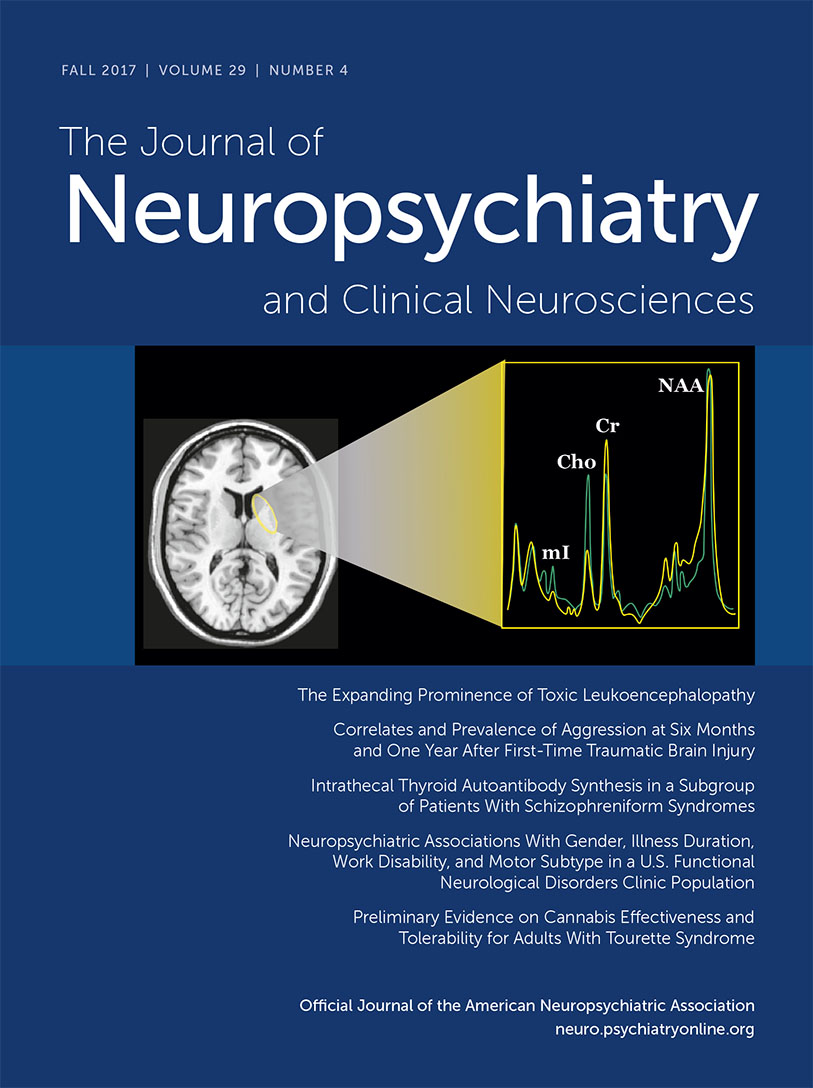Seizure Control and Memory Impairment Are Related to Disrupted Brain Functional Integration in Temporal Lobe Epilepsy
Abstract
Brain functional integration can be disrupted in patients with temporal lobe epilepsy (TLE), but the clinical relevance of this disruption is not completely understood. The authors hypothesized that disrupted functional integration over brain regions remote from, as well as adjacent to, the seizure focus could be related to clinical severity in terms of seizure control and memory impairment. Using resting-state functional MRI data acquired from 48 TLE patients and 45 healthy controls, the authors mapped functional brain networks and assessed changes in a network parameter of brain functional integration, efficiency, to examine the distribution of disrupted functional integration within and between brain regions. The authors assessed whether the extent of altered efficiency was influenced by seizure control status and whether the degree of altered efficiency was associated with the severity of memory impairment. Alterations in the efficiency were observed primarily near the subcortical region ipsilateral to the seizure focus in TLE patients. The extent of regional involvement was greater in patients with poor seizure control: it reached the frontal, temporal, occipital, and insular cortices in TLE patients with poor seizure control, whereas it was limited to the limbic and parietal cortices in TLE patients with good seizure control. Furthermore, TLE patients with poor seizure control experienced more severe memory impairment, and this was associated with lower efficiency in the brain regions with altered efficiency. These findings indicate that the distribution of disrupted brain functional integration is clinically relevant, as it is associated with seizure control status and comorbid memory impairment.



